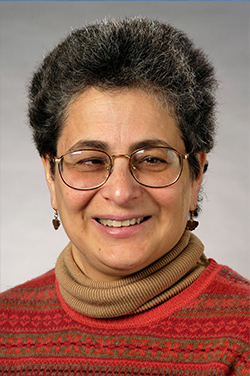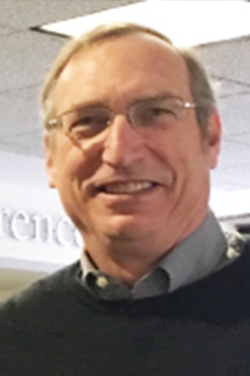CREATE Appoints 10 Prominent Scholars as External Senior Research Fellows
CREATE is proud to announce the appointment of 10 prominent scholars at other universities, who have long been affiliated with the Center, as External Research Fellows. The formal title is intended to strengthen the working relationships with this group and enhance CREATE’s research profile.
“These new appointments are intended as recognition for the valuable contributions several of our affiliates have made over the years,” CREATE’s new Director, Adam Rose, noted. “At the same time, it is recognition of CREATE’s prominence and potential, in that these senior scholars are committed to work with us in the future even with no guarantee of funding.”
CREATE began in 2004 as a “geographically-distributed” research center, meaning that much of its funding was a conduit to leading researchers outside of USC in its scope of fields. CREATE benefited from these individual research projects, many of which turned into synergistic efforts between externally and internally located scholars, including obtaining additional research funding from a variety of DHS offices and components, as well as funding from other government sources at all levels, the National Science Foundation, and private industry.
In 2016, the situation changed, with DHS Office of University Programs funding limitations that curtailed this format. Since then, however, CREATE has continued to work with some of its external collaborators in several ways, including methodologies for making terrorism risk assessments more useful for decision making, randomization of Federal Air Marshalls’ allocation to international flights, studies on immigration from Central America, benefit-cost analyses of DHS projects, economic consequence analysis of seaport disruptions, the measurement of resilience to disasters, population out-migration and return following Hurricane Katrina and the Fukushima Nuclear accident, evaluation of investment need for land ports of entry, data stewardship at the Office of University Programs, methodology development for assessing air traveler risk and determining an optimal level of checkpoint screening, and public risk perception, fear, and avoidance behavior following lone-actor soft-target terror attacks.
Professor Rose further noted that one special case stands out with regard to Milind Tambe, who, up to this past academic year, served as Distinguished Professor of Computer Science and Industrial Systems Engineering at USC, and has agreed to continue to interact with us formally even after he left to take a position as Gordon McKay Professor of Computer Science at Harvard University.
CREATE External Senior Research Fellows
Eli Berman
University of California, San Diego
Professor, Department of Economics; Research Associate, National Bureau of Economic Research; Co-Director, Empirical Studies of Conflict Project
Eli Berman is a professor in the Department of Economics at the University of California, San Diego. He is also a research associate at the National Bureau of Economic Research, a research director for International Security Studies at the Institute for Global Conflict and Cooperation (IGCC) and director for the Policy Design and Evaluation Lab (PDEL). His major research interests include development and conflict, terrorism, and religion. Funding from CREATE enabled him to study the economics of counterinsurgency in Iraq; religion, terrorism and public goods, Journal of Public Economics, date); and successful development in conflict zones, among other topics. Grants from the National Science Foundation enabled Eli to examine relationships between religion and fertility from an economic standpoint, highlighted in the publications in the Journal of Public Economics, (date) and and in the New Palgrave Encyclopedia of Economics. His book Radical, Religious and Violent: The New Economics of Terrorism was published by MIT Press. He also received funding support for work on terrorism from the Minerva Research Initiative. Eli is President of the Economics of National Security Association. Read more

Vicki Bier
University of Wisconsin-Madison
Professor and Chair, Industrial Systems and Engineering
Vicki Bier is a professor and chair of the Industrial Systems and Engineering department at the University of Wisconsin-Madison. Her research interests include the application of game theory to identify optimal resource allocation strategies for protecting critical infrastructure from intentional attacks. Other interests include: the use of accident “precursors" or near misses in probabilistic risk analysis; the use of expert opinion; and methods for effective risk communication, both to decision makers and to the general public. Vicki’s work with CREATE has included studies examining adversary decision modeling, terrorism risk management and other topics. She has received the Distinguished Achievement Award from the Society for Risk Analysis. Frank P. Ramsey Medal from the Decision Analysis Society, and is a Fellow of the Institute for Operations Research and the Management Sciences. She currently serves as the Editor-in Chief of Decision Analysis. Read more

William Burns
California State University, San Marcos
Decision Research, Research Scientist
Bill Burns is a research scientist at Decision Research in Eugene, Oregon. He also teaches probability, regression and decision modeling part-time at California State University, San Marcos. His research investigates public response to crisis events, deterrence of terrorism, and mitigating factors that contribute to public susceptibility to misinformation. He has been the lead investigator on three CREATE sponsored research projects for the TSA and has given scientific briefings to DHS and the Pentagon. Bill spent three summers working in Washington D.C. at the TSA on a Department of Homeland Security University Faculty Fellowship as a scientific advisor. Bill’s work has also been funded by the National Science Foundation. Read more

Robin L. Dillon-Merrill
Georgetown University
Professor, McDonough School of Business
Robin L. Dillon-Merrill is a professor in the McDonough School of Business at Georgetown University. From 2017-2019 she served as the Program Director for the National Science Foundation’s Humans, Disasters and the Built Environment program in the Directorate of Engineering. Robin seeks to understand and explain how and why people make the decisions that they do under conditions of uncertainty and risk. This research specifically examines critical decisions that people have made following near-miss events in situations with severe outcomes including hurricane evacuation, terrorism, cybersecurity, and NASA mission management. Robin’s projects with CREATE have focused on risk modeling and communication for the Transportation Security Agency (TSA) and more broadly individuals’ responses to terrorism near-miss events over time. She has received research funding from the National Science Foundation, NASA, the Department of Defense, and the Department of Homeland Security through CREATE. Read more

Peter B. Dixon
Victoria University, Australia
Professor, Center of Policy Studies
Peter B. Dixon is a professor at the Center of Policy Studies, Victoria University, Melbourne, Australia. He previously held the position of Sir John Monash Distinguished Professor at Monash University. His research is focused on advances in computable general equilibrium modelling and it application to international trade, disasters and economic policy-making in general. His work with CREATE include studies examining the costs of U.S. border closures, the economic implications of terrorism events, and the effects of a H1N1 epidemic. Peter is a Fellow of Academy of the Social Sciences in Australia Distinguished Fellow of the Economic Society of Australia, and an Officer in the Order of Australia. He was also recently inducted into the Global Trade Analysis Project Research Fellow Hall of Fame. Read more

Scott Farrow
University of Maryland, Baltimore County
Emeritus Professor, Department of Economics, formerly Chief Economist of the GAO
Scott Farrow is an emeritus professor in the Department of Economics at the University of Maryland, Baltimore County. He previously served as the Chief Economist of the U.S. Government Accountability Office and twice in the Executive Office of the President. His work focuses on the economic, especially benefit-cost and risk-based, evaluation of government programs spanning issues in homeland security, the environment and natural resources. Scott’s work with CREATE includes studies examining the value of Homeland Security research and the economics of Homeland Security expenditure. He was the founding editor of the Journal of Benefit-Cost Analysis and received the Distinguished Service Award from the Society for Benefit-Cost Analysis. Read more

Gilberto Montibeller
Loughborough University
Professor of Management Science
Gilberto Montibeller is a professor of Management Science at Loughborough University, and the Acting Associate Dean for Enterprise at the School of Business and Economics. His major research interests include behavioral issues in risk and decision analysis, risk management and resource prioritization against security and health threats. Gilberto’s work with CREATE includes various studies investigating the behavior of terrorist organizations. His research has been recognized with best publication awards granted by the Society of Risk Analysis, Informs, and the International Society on Multi-Criteria Decision Making. He is associate editor of the Informs Decision Analysis Journal and has served for a decade as area editor of the Journal of Multi-Criteria Decision Analysis. Read more

Paul Slovic
University of Oregon
Professor of Psychology; President, Decision Research
Paul Slovic is a professor of psychology at the University of Oregon and the President of Decision Research. His research interests include the psychology of risk and decision making, risk perception, genocide, war and terrorism. Paul has worked with CREATE on a host of studies of the risk and economic impact of terrorism. He is a past President of the Society for Risk Analysis and has received its Distinguished Contribution Award. He has also received the Distinguished Scientific Contribution Award from the American Psychological Association, and the Outstanding Contribution to Science Award from the Oregon Academy of Science. He is an elected member of the American Academy of Arts and Sciences and the National Academy of Sciences. Read more

Milind Tambe
Harvard University
Gordon McKay Professor of Computer Science and Director of Center for Research in Computation and Society
Milind Tambe is the Gordon McKay Professor of Computer Science at Harvard University where he also serves as the Director of the Center for Research in Computation and Society. Milind’s current research is focused on artificial intelligence for social good. His work with CREATE includes studies to randomize patrols for the U.S. Coast Guard and Los Angeles Sheriff’s Department as well as checkpoints and canine patrols at the Los Angeles International Airport. He is recipient of the International Joint Conference on AI John McCarthy Award, ACM/SIGAI Autonomous Agents Research Award from the Autonomous Agents and Multiagent Systems Conference, Association for Advancement of Artificial Intelligence Robert S Engelmore Memorial Lecture Award, INFORMS Wagner Prize, Military Operations Research Society Rist Prize, and Christopher Columbus Fellowship Foundation Homeland Security Award. He is a fellow of AAAI and ACM. He has also received meritorious Team Commendations from the US Coast Guard and L.A. Airport Police, and a Certificate of Appreciation from US Federal Air Marshals Service for pioneering real-world deployments of security games. Read more

